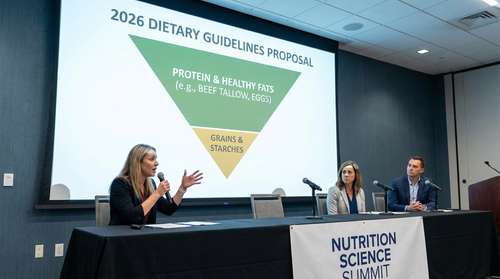Healthy snacking: Eating nuts and seeds can decrease risk of heart disease by 20%
By
Josh Piers

Snacks in between meals have been suggested as a potential option for reducing cravings and maintaining satiation. But, as you become older, what kinds of snacks are best? A recent study sheds some light on the subject.
Nuts and dried fruit, according to a study published in the International Journal of Environmental Research and Public Health, can help people avoid belly obesity as they become older.
The participants in this observational, descriptive, cross-sectional, and correlational study were 65 to 79 years old and ate 30 grams of nuts or dried fruit for at least three days per week. Finally, researchers discovered that those who did not consume the appropriate number of snacks had a "19% higher prevalence of abdominal obesity."
According to the January 2022 study, when compared to consuming fewer than three times per week, there was a 61% higher prevalence of MetS. MetS is a group of risk factors linked to abdominal obesity and insulin resistance, including high blood pressure, hyperglycemia, and lipid changes such as hypertriglyceridemia and decreased HDL-c, all of which contribute to the development of type 2 diabetes and cardiovascular disease.
According to Minal Shah, senior nutrition therapist at Fortis Hospital in Mulund, "the study is relevant because there is a popular assumption that nuts give surplus energy and so induce obesity."
"A lot of people have misconceptions about nuts. Despite their high-calorie content, there is substantial scientific evidence that regular ingestion of nuts has no negative effects. It aids in the reduction of a person's body weight to some extent.
According to Shah, "certain studies link the frequency of nuts consumption to a lower risk of Coronary Heart Disease (CHD) or diabetes, or even an inverse relationship with BMI."
According to the study, despite their fatty acid-rich nutritional makeup, almonds help people stick to a balanced diet since those who eat nuts frequently eat less red and processed meat.
"Nutritional composition of nuts makes them of special interest to older individuals by increasing the quality of their diet, nutritional status, and levels of oxidative stress and inflammation," according to the study.
How much nuts should I eat?
Unsalted nuts should be consumed four times a week, according to the American Heart Association. Nuts that are raw or dry-roasted are preferred over nuts that have been cooked in oil. According to experts, a handful of nuts — as much as will fit in the palm of your hand — is plenty.
Eating nuts can decrease risk of heart disease by 20% according to the Heart Foundation
According to recent guidance from the Heart Foundation, eating three to four handfuls of nuts and seeds per week can reduce the risk of heart disease by roughly 20%.
Low-density lipoprotein (LDL) cholesterol, also known as "bad cholesterol," can be reduced by eating nuts and seeds on a regular basis as part of a balanced diet. High LDL cholesterol levels can increase a person's risk of heart disease and stroke.
A build-up of 'bad' cholesterol inside the blood arteries, which are responsible for transporting blood and oxygen throughout the body, can occur. This build-up, known as 'plaque,' causes lumps of hard fat to accumulate on the walls of blood vessels.
The insides of the vessels can constrict as plaque builds up over time. Blood flow to and from the heart and other organs is obstructed by this constriction. Angina (chest pain) or a heart attack can occur when blood flow to the heart is blocked. A piece of plaque can break off and clog an artery, resulting in a stroke or heart attack.
Lily Henderson, the national nutrition advisor for the Heart Foundation, says the goal is to get more New Zealanders eating nuts and seeds and incorporating them into their daily meals.
"Adding a few handfuls of nuts and seeds to your diet on a regular basis has a favorable impact on our heart health," she explains. "The majority of the benefits are shown when we eat up to 15g per day (or three to four handfuls per week), but higher intakes are likely to provide additional heart health benefits."
To get the most out of the health benefits of nuts and seeds, Henderson recommends eating them in their natural state, such as whole, sliced, or pulverized. Nut and seed kinds of butter, such as peanut butter, almond butter, and sunflower seed butter, are also excellent choices, especially when compared to jam or honey.
What's Your Reaction?
Share this article
Author
Related Posts

New Dietary Guidelines Spark Outrage: Experts Warn of Heart Health Crisis

FDA to Review Ultra-Processed Foods Safety After ‘60 Minutes’ Exposes GRAS Loophole

Intermittent Fasting Review 2026: Major Cochrane Study Debunks Weight Loss Hype
